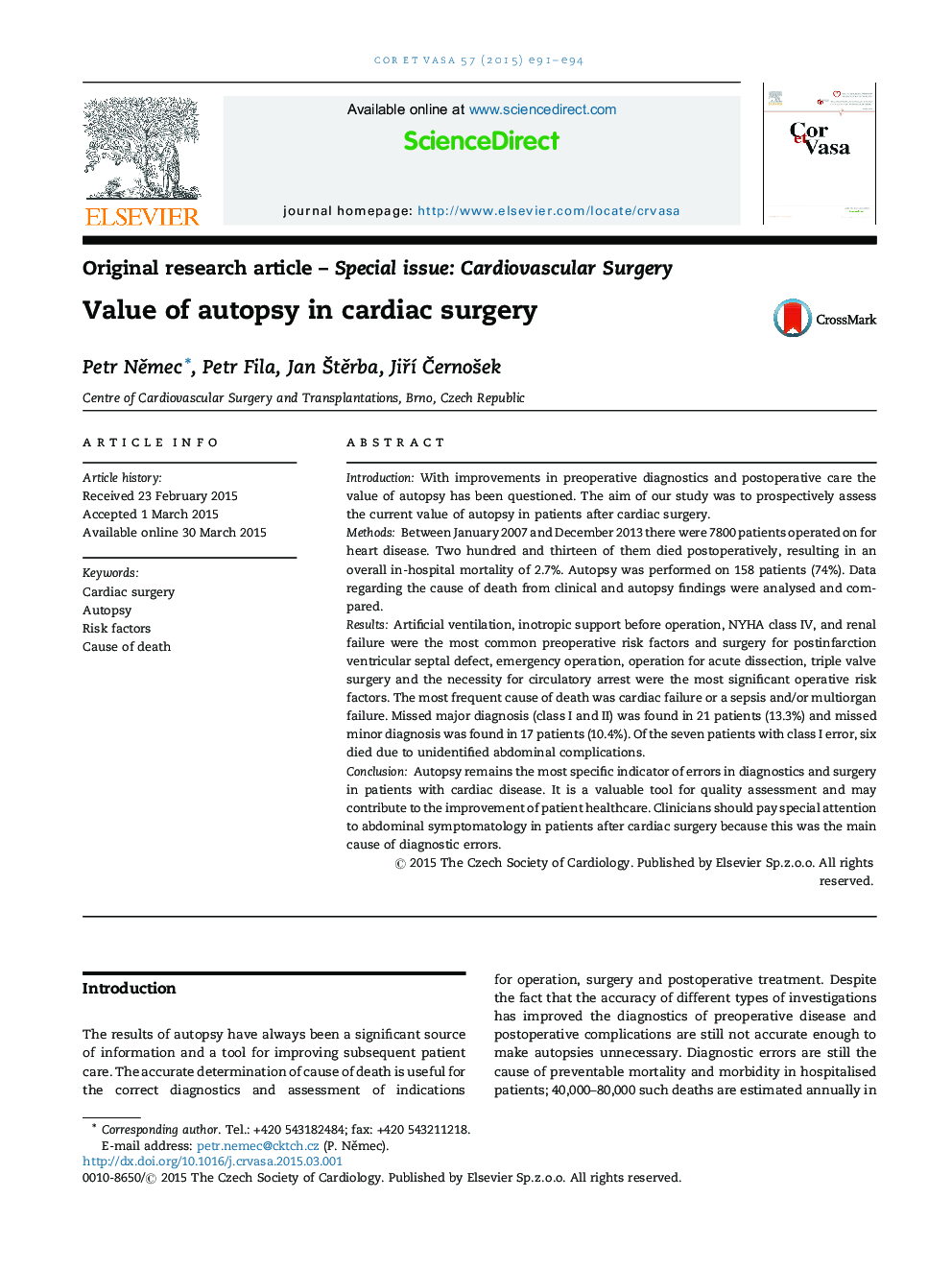| Article ID | Journal | Published Year | Pages | File Type |
|---|---|---|---|---|
| 2728393 | Cor et Vasa | 2015 | 4 Pages |
IntroductionWith improvements in preoperative diagnostics and postoperative care the value of autopsy has been questioned. The aim of our study was to prospectively assess the current value of autopsy in patients after cardiac surgery.MethodsBetween January 2007 and December 2013 there were 7800 patients operated on for heart disease. Two hundred and thirteen of them died postoperatively, resulting in an overall in-hospital mortality of 2.7%. Autopsy was performed on 158 patients (74%). Data regarding the cause of death from clinical and autopsy findings were analysed and compared.ResultsArtificial ventilation, inotropic support before operation, NYHA class IV, and renal failure were the most common preoperative risk factors and surgery for postinfarction ventricular septal defect, emergency operation, operation for acute dissection, triple valve surgery and the necessity for circulatory arrest were the most significant operative risk factors. The most frequent cause of death was cardiac failure or a sepsis and/or multiorgan failure. Missed major diagnosis (class I and II) was found in 21 patients (13.3%) and missed minor diagnosis was found in 17 patients (10.4%). Of the seven patients with class I error, six died due to unidentified abdominal complications.ConclusionAutopsy remains the most specific indicator of errors in diagnostics and surgery in patients with cardiac disease. It is a valuable tool for quality assessment and may contribute to the improvement of patient healthcare. Clinicians should pay special attention to abdominal symptomatology in patients after cardiac surgery because this was the main cause of diagnostic errors.
